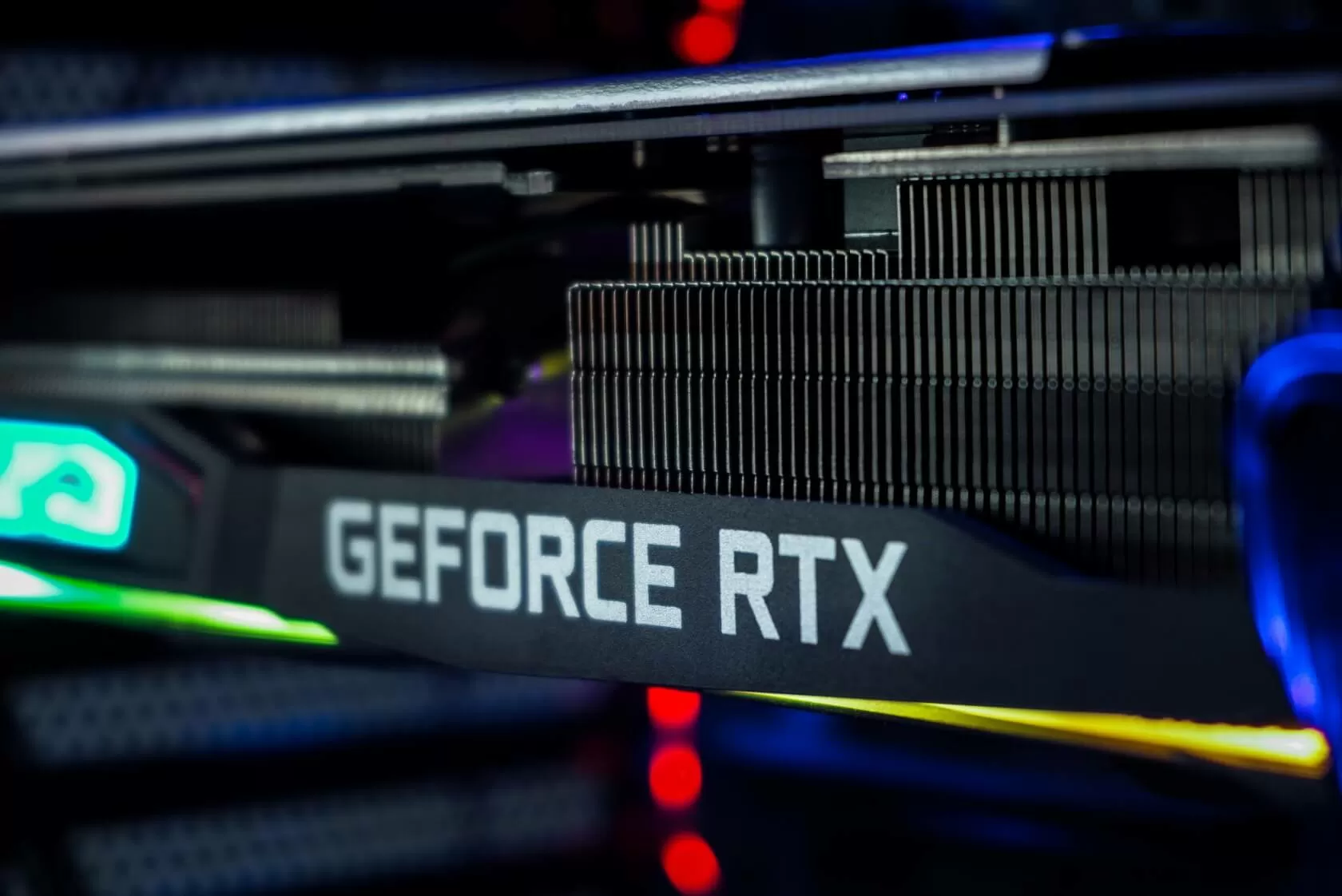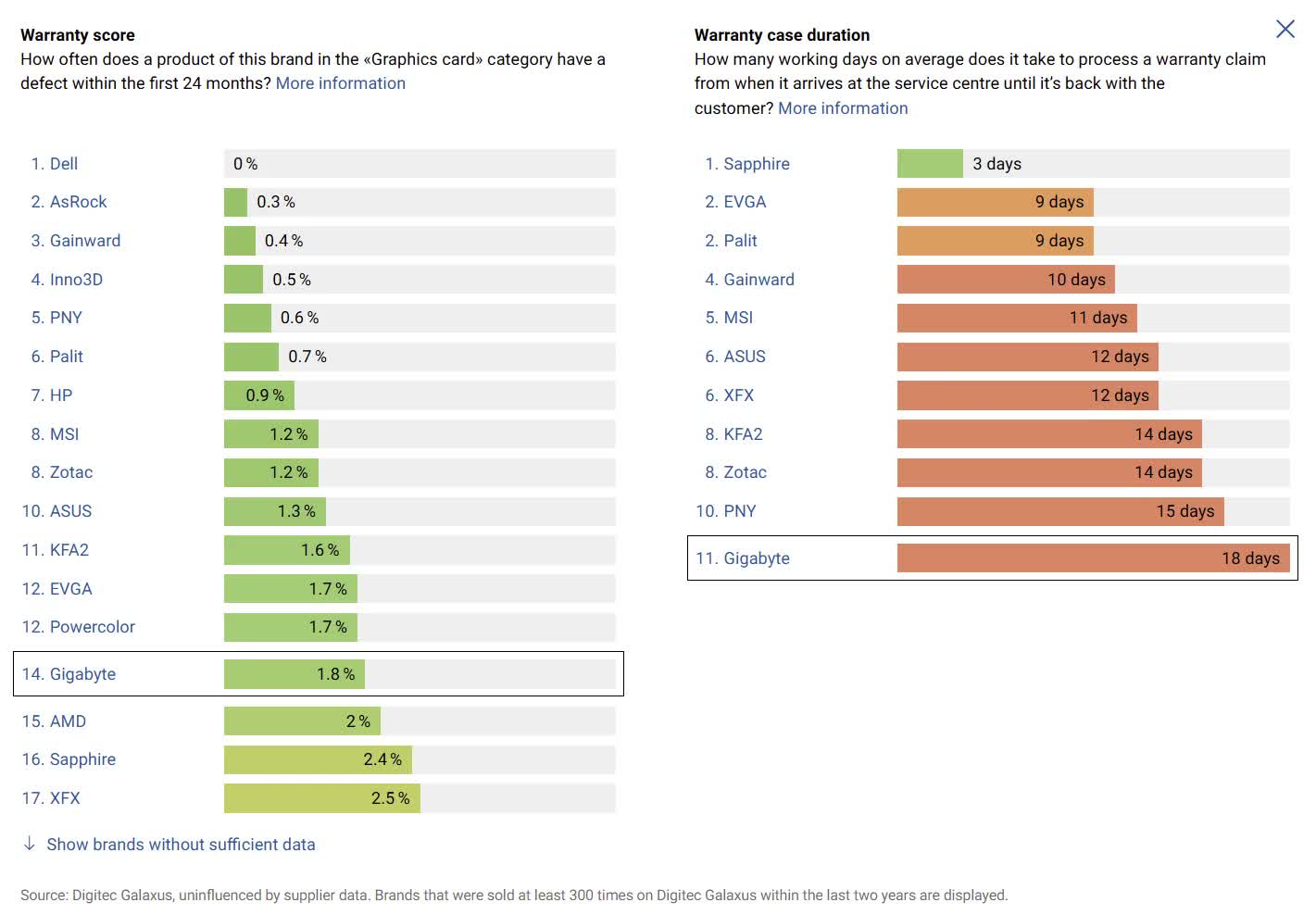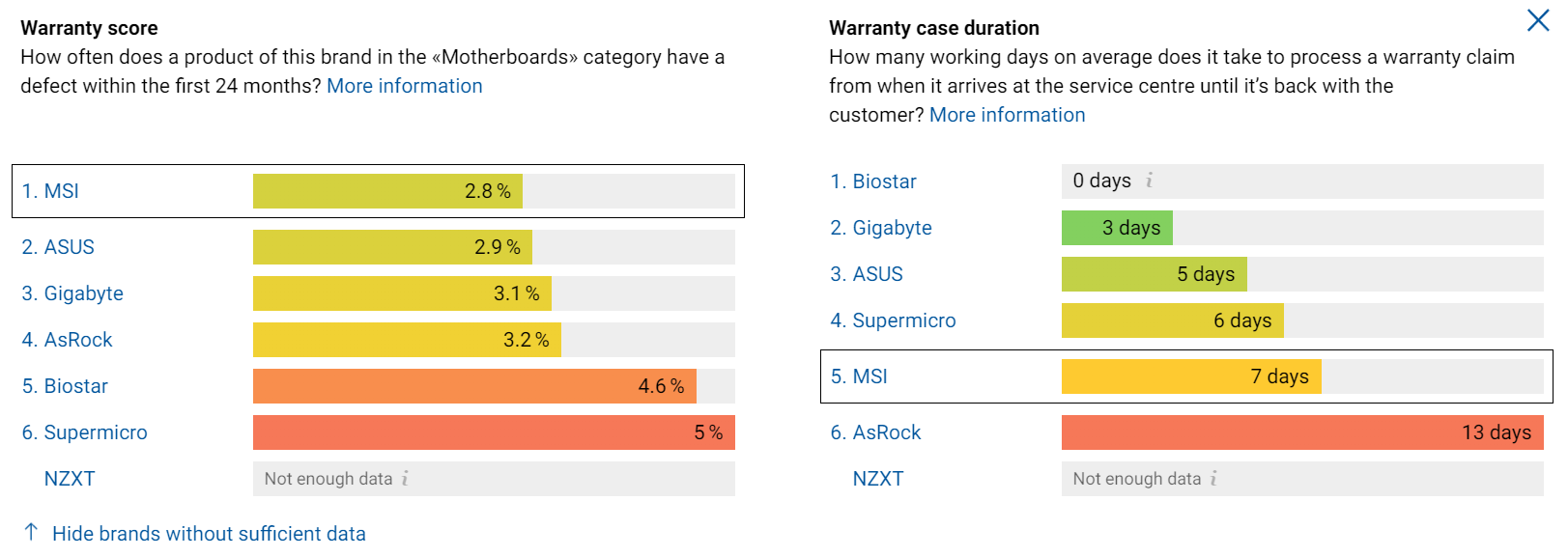Why it matters: It's a sad truth that graphics cards and motherboards can fail for one reason or another. Providing they're still covered, this is the time to take advantage of their warranties. But which manufacturers create the most reliable hardware, and which are the quickest at carrying out warranty repairs? A major PC retailer in Switzerland has given us an idea by publishing their warranty claim statistics.

Reddit user GaoHAQ (via VideoCardz) posted the GPU and motherboard defect rate for each brand that Swiss retailer Digitec sold over the last two years. That timeframe is an important factor as it covers the height of covid-19 and the cryptomining craze, which could somewhat skew the warranty case duration stats, though it's still an interesting read.
Starting with the GPU warranty score—how often a product from a particular brand had a defect in the first 24 months—the most reliable company is Dell. That doesn't come as much of a surprise as Dell only makes enterprise/workstation cards such as Nvidia's A6000, which costs $6,799. The lack of custom cooling and factory overclocking, along with their high price and build quality, contribute to the failure rate of 0%.
Second to Dell in the warranty score table is Asrock with a failure rate of just 0.3%, followed by other smaller companies: Gainward, Inno3D, PNY, and Pallit. Interestingly, the two worst manufacturers, Sapphire (2.4%) and XFX (2.5%), produce only AMD cards.
Despite its relatively poor showing in the warranty score section, Sapphire tops the warranty case duration table. On average, it took just 3 days for the company to process a warranty claim form from the moment it arrived at the service center until the faulty card was back with the customer.
EVGA, which has a reputation for offering excellent and effective product warranties, was the joint second-best performer with a wait of 9 days. Sadly, the company last year announced that it wouldn't be producing RTX 4000-series GPUs due to an abusive relationship with Nvidia.
As for the manufacturer that took the longest amount of time to process a warranty, Gigabyte took this unwanted title with an average wait time of 18 days.
Moving onto motherboards, MSI has the lowest failure rate in this category (2.8%), while Supermicro's 5% places it last. As for how long it takes companies to repair these products, Biostar is top with 0 days, likely meaning it sends out replacement boards as soon as the faulty ones arrive at its repair center.
Ironically, Gigabyte, which took the longest time to fix its GPUs, was second-quickest with mobo warranty cases, taking just three days to complete a claim process. Asrock was last with 13 days.
There are a few caveats with this data, including regional laws relating to warranty claims, but it's a potentially helpful set of stats for those considering a GPU or motherboard purchase.


